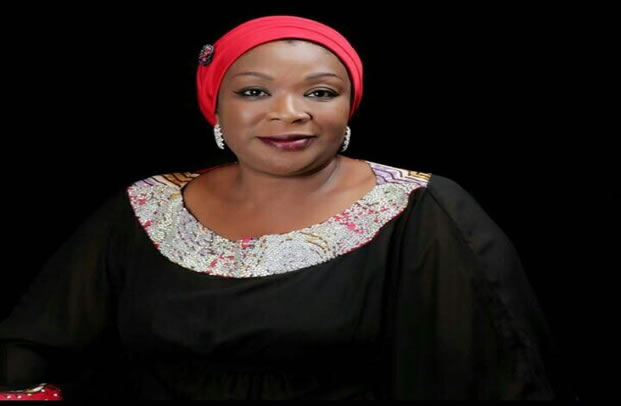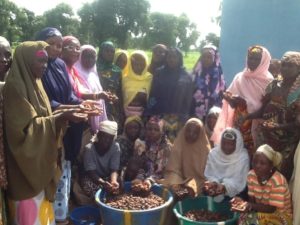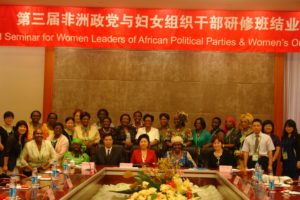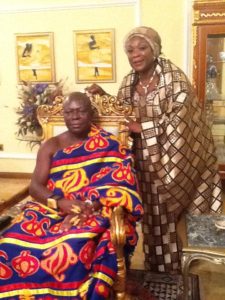Dr. Bilkisu Magoro is the Founder, MagoroFoundation and Bilmor Technical and Vocational Centre, which caters for the needs of women, girls and children. She also has passion for the education of children with special needs. She speaks to ENE OSANG on her passion and the Foundation among other issues.
What is Magoro Foundation and Bilmor Technical and Vocational Centre all about?
Basically, the Foundation was set up in 2008 and we focus mainly on women, youths and children empowerment. For the past three years we have been working towards the Millennium Development Goals (MDG’s) and now the Sustainability Development Goals (SDGs).
We have done lots of work towards rural women empowerment and how they can get access to finance. We deal with children education especially those with learning disability through Bilmor Vocational Centre; the Foundation and Vocational Centre work together towards harnessing education and skills for children with disability.
What motivated you to start the Foundation?
To start with; I am into politics and I realised there was a need for lots of women to be empowered to enable them take care themselves. If we look at statistics a lot of women are voters and just by giving them little amount of money politicians win them over to get their votes.
So, I believe if they are empowered they won’t be enticed by little amounts rather they will be involved in decision making by asking questions and decide who they want to vote for themselves.
Again, when rural women get some education they will value it and allow their children to have access to education and won’t send them out hawking while their mates are in the classrooms, or get them married at an early age, so it’s a vicious cycle. If we work on rural women the issues of migration would be tackled
How do you select the women you empower?
I don’t select, I just go to the rural where there is a demand and empower women. I have been doing some work with shea butter, I gone to areas where it is found and train the women though to be honest most of the work I have done is in north, I believe there is a greater need for it here especially the issues of insurgents IDP’s leaves a lot to be done here. Those who have gone through our empowerment programmes are doing well, some women have been able to do things for themselves. We get women on communities so it is mostly group empowerment.
Do you give start-up funds to the women?
What we do is in the Kebbi Centre located at Samia, for example it is not like we give them funds, we have centres, equipped with machines, where the women process the shea butter and after sales they sales, there is a minimal amount they give just to maintain the centre.
Sometimes, when there are orders for such products we buy the products, give to the women to process, we sell them and then give them the profits.
So, we don’t give them direct funds; yes, giving them funds is good but it doesn’t go too far.
Some of the women go to pluck the shea and we pay them, some process it while others package them, then we sell. So, it’s a long chain reaction within the women. When you empower them and they are earning something, they won’t be deceived by little money from politicians rather the ask them questions.
You are also an ardent advocate of girl-child education, what is your inspiration?
I didn’t have challenge regarding my education. In fact, I went to a number of schools from Army Children’s School in Kaduna, to Army Children’s School in Lagos Cantonment, Yaba. Education was on the front burner for my parents. My parents had mostly girls and one boy and they made sure the girls had the best education and that’s why I am advocating for other girls to have access to education.
How do you feel seeing children of school age being denied opportunity to be educated?
I think we have to look closely at that because this issue cuts across. Poverty level and the system itself allows this to happen. When you have a girl-child it is easier to marry the girl off to remove some burden on the family.
It is perceived that when the girl marries it is like one mouth to feed being taken off and such parents feel comfortable and relieved. You look at the economic defect and religious part which plays from both sides. It is a kind of trade and batter with regards to education.
The issue of challenges in getting education has always been there and is a problem for the girl-child but honestly in recent times, we have improved in the number of girls enrolled in schools.
The issue now is the problem of abduction that is becoming rampant and I think that goes with society too. There is this radical idea in some people that girl-child should not be educated, it is a process and a battle we need to fight. We also need to advocate more on the need for girl-child education.
Nigeria joined the world to celebrate the International Women’s Day. Do you think the country had reason to celebrate?
I think women should be celebrated every day because women and girls have gone through a lot and are still going through a lot. The International Women’s Day is a struggle and every little progress should be celebrated.
In my centre, every little progress of a child is celebrated because it’s a process we build on and look forward to getting better as we build that process.
The awareness should be more and it is building up yearly; women are discussing their progress, challenges and proffering solutions on ways of getting better.
When you are not working, how do you relax?
I have leisure time and I do take time off sometimes to do other activities with children at the centre. I relax with them.
So, why children with special needs?
I have passion for children and while growing up we had children with special needs but as we grew older, I don’t get to see them so I decided to snoop around to find them because I realised there is a gap and a need for the children with learning disability to be well cared for.
I have passion for them, I love them very much; they are my children.
What advice do you have for women especially as elections draw closer?
Women in politics should get make their voice heard if they are ready to participate in politics. I believe, by now such women should know the role they want to play in the forthcoming elections, they should have decided what they want to do.
Again, women generally should get their voters’ card. We should be patient because we are strong and we will achieve a lot together. So, we should always support each other, work as a network no matter how little.



